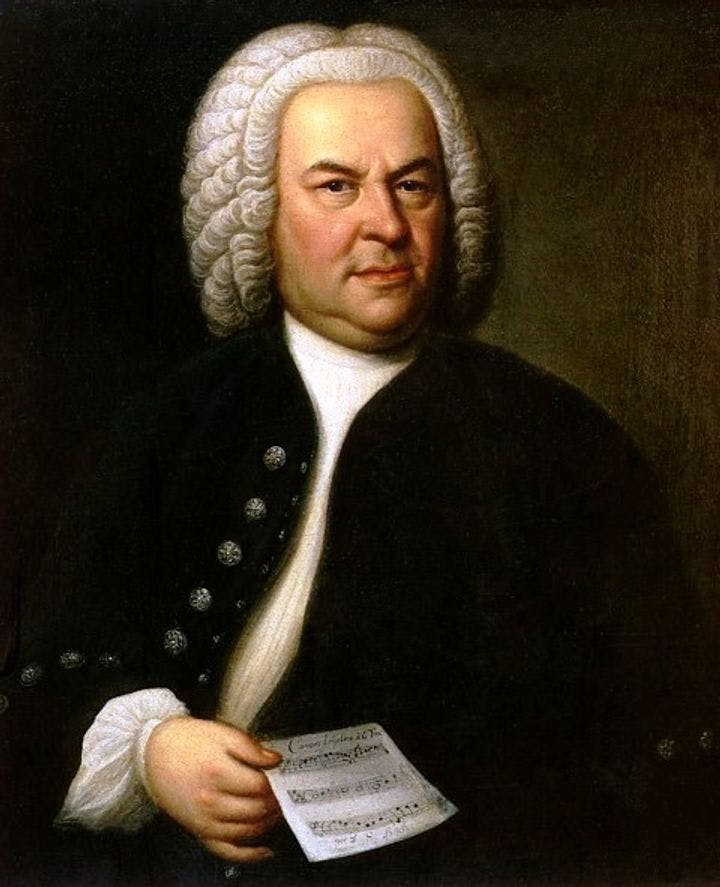Spring 2008
Bach the Unknowable
– The Wilson Quarterly
Johann Sebastian Bach may be one of our most revered musical geniuses, but he is also one of the least known.
Think of Wolfgang Amadeus Mozart and you might picture an abused little prodigy being ferried to performances across Europe by his greedy father. And many people can’t conjure up Ludwig von Beethoven without seeing the irascible genius, completely deaf, having to be turned around to see the tumultuous standing ovation at the premiere of his Ninth Symphony. Compared with the fame of these two masters, the name Johann Sebastian Bach produces no popular image at all.
Yet Bach (1685–1750) is the “father of Western music,” writes critic Harold Fromm. He’s in the “very chemistry of Western musical blood, like red cells, white cells, and platelets in our material plasma.” Bach fails to cut much of a human figure simply because, apart from enough music to fill 160 CDs, he left so little behind. It doesn't help that he lived in Leipzig, far from the great centers of European culture.
Because his only surviving correspondence lies primarily in church and municipal ledgers, the great composer comes off as an “aggressive businessman whining about maltreatment and underpayment,” though in fact he lived a rich professional, social, and family life and earned considerable recognition. Ten of his 20 children died before adulthood, but four lived to become famous musicians in their own right.
Bach was born in Thuringia in present-day Germany, lost both parents by the time he was 10, and by 18 was employed as a professional organist. In 1723 he was named cantor and music director at a school and four churches in Leipzig, where he struggled to stage his compositions using mostly student singers and musicians.
In more than a thousand compositions, Bach perfected the contrapuntal (or counterpoint) style, in which two or more independent but harmonically related melodic parts are played at the same time—a challenging proposition that music teachers sometimes describe to beginning students as akin to patting their heads and rubbing their stomachs at the same time. He changed the way music was played. Before Bach, the thumb had been only rarely used in keyboard playing, but he pioneered its far greater use (along with that of the little finger) to hold down a key while the other fingers played around it. This made it possible to produce both dominant melodies and elaborate flourishes at the same time. It also made the music harder to play.
During his 27 years in Leipzig, Bach volunteered to compose a new church cantata of his own almost every Sunday for a period of five years. He continually recycled material, changing instrumentation, adding and deleting. Two of his greatest works, the Mass in B minor (1748–49) and the Christmas Oratorio (1734–35), were “tweaked from mostly secular existing gems,” Fromm writes.
In Bach’s day, words mattered more in the Lutheran Church than music. This was liturgical music, after all. Today the words seem pietistic—even “deadly,” Fromm says, while the music is almost universally regarded as inspiring and astonishingly inventive.
* * *
The Source: "J. S. Bach in the Twenty-First Century: The Chapel Becomes a Larder" by Harold Fromm, in The Hudson Review, Winter 2008.
Image courtesy of Wikimedia Commons
